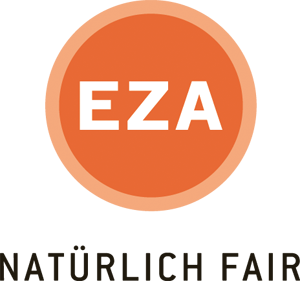(Preliminary) Programme:
12:45 - 13:00 Registration and coffee
13:00 – 13:20 Introduction
13:50 – 14:50 Block 1: Lessons from the Mediterranean. The aim of this panel is to hear the experiences and lessons learnt during the events in 2015-2016, when hundreds of thousands of refugees, mainly from Syria, Afghanistan and Iraq, fled to Europe through dangerous Mediterranean routes. It will focus on the impact of these events on regional policies and public attitudes, reception as well as further integration policies for refugees in different areas of life in countries that faced large numbers of arrivals. Drawing upon previous experiences and knowledge, what should we expect soon responding to the situation in Ukraine as well as what should countries do differently this time to not repeat the same mistakes as in the past?
Partner countries’ input: Greece (Inter Alia), Spain (SOS Racismo Arrazakeria), Austria (asylkoordination österreich), Slovenia (Slovenska Filantropija) (15min presentations)
· Changing public attitudes in your country towards refugees in 2015-2016: how did they change since 2015-2016? What determined such changes? What can we learn from these changes?
· What was the response of the Governments to the so-called migration crisis in 2015-2016 and what impact has it had for the current migration and migrant integration policies in your country. What can we learn from these changes?
· It has been about 7 years since the influx of refugees in your country: where are refugees who came in 2015-16 now? Practices and lessons learnt. How to avoid their poverty and socio-economic isolation? Integration challenges and good examples.
· Working with vulnerable migrants: based on your experiences during the 2015-16 events, what are the risks and measures that should be taken now to protect the most vulnerable refugees fleeing Ukraine from human trafficking and exploitation as well?
14:50 – 15:15 Q&A
15:15 – 15:30 Coffee break
15:30 – 16:30 Block 2: Evolving knowledge on the Eastern and Central frontier. The aim of this panel is to look at the responses of Eastern and Central European countries to the irregular migration from Belarus that started in 2021 vs. responses to the refugees fleeing Ukraine in 2022. How do they compare to the responses to the 2015-2016 events in the Mediterranean? What determined different responses? What are the consequences of such different approaches towards refugees on their wellbeing and societies as a whole?
Partner countries’ input: Czech Republic (Organizace pro pomoc uprchlíkům), Poland (Centrum Pomocy Prawnej Im.Haliny Nieć), Lithuania (Diversity Development Group) (15min presentations)
Sub-themes for presentations to be chosen by project partners (each partner selects sub-theme(s) they will cover during their presentation):
· What was the response of the Governments to irregular migration across the border of Belarus and what impact has it had for the current migration and migrant integration policies in your country. How does it differ in the context of Ukrainian situation and previous refugee waves (Lithuania)
· What was the response of public and media regarding irregular migration from Belarus in your country? How does it differ in comparison to the flight from Ukraine? What may the underlying reasons for different responses regarding these two situations be? How did the overall approach towards immigration and integration of refugees influence the public and media response in your country? (Poland?)
· What is your country doing to respond and accommodate refugees from Ukraine? What is lacking? How the policy responses differ in comparison to previous refugee waves? (i.e., 2015-2016, Belarus 2021) Any good practices to share with others? (Czech Republic?)
· What effect did the war in Ukraine have on public attitudes as well as media and policy narratives towards asylum and migration? Are there any changes that are already visible in the overall approach towards immigration and integration of refugees in your country, or is approach towards reception and integration selective
16:30 – 17:15 Moderated discussion (Representatives from countries of both block 1 & 2): Comparing the ‘welcome’ and ‘unwelcome’ reception and integration policies in Europe
17:15 – 17:30 Closing of the day 1
Day 2:
10:00 – 12:00 Practical workshop (only partner organisations): the aim of the workshop is to highlight the good practices and difficulties organisations face individually and collectively when addressing various migration challenges. It also aims to look for the ways on possibly overcoming some of them by individual efforts as well as partnership cooperation.
12:00 – 13:00 “Solidarity in a future Europe” project closure








